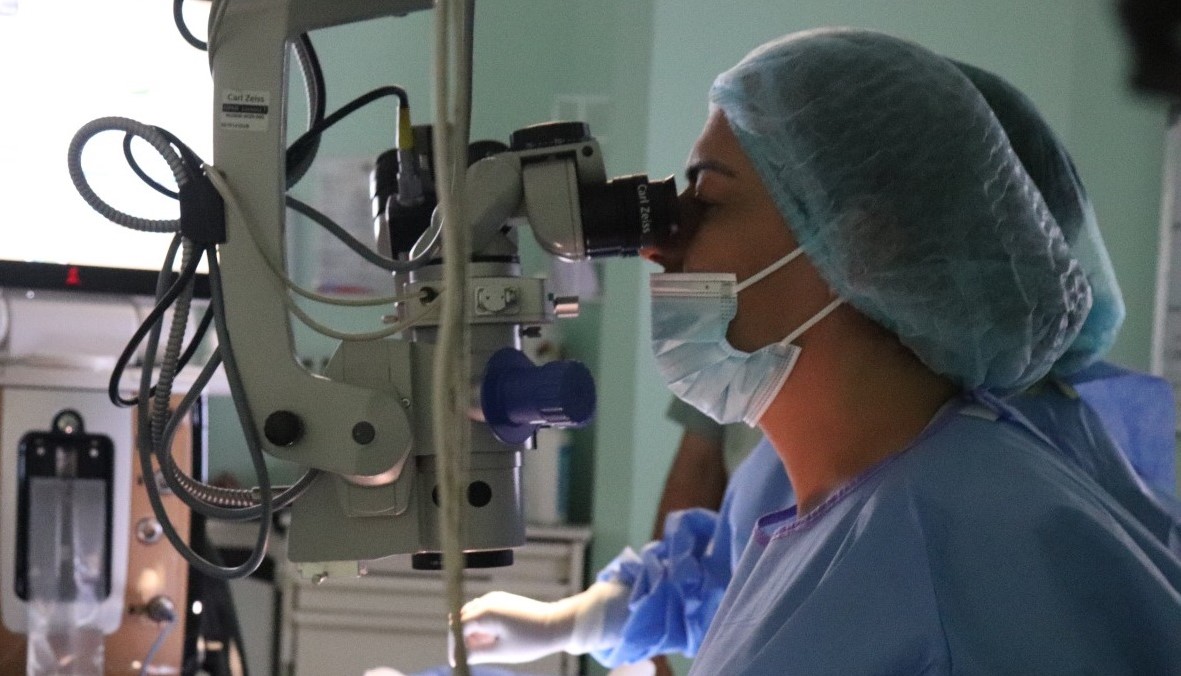
UMC Inaugurates Latest Phaco Device to Remove Cataracts
Arabian Gulf University
29 Dec, 2024
The University Medical Centre (UMC) in King Abdullah Medical City, affiliated with Arabian Gulf University (AGU), inaugurated the latest medical device for performing cataract removal surgeries. Manufactured by the international company Alcon, this advanced device was acquired to enhance the quality of medical services provided at the centre.
CEO of UMC Dr Salman Hamad Alzayani stated that UMC always seeks to provide the best healthcare in accordance with the latest international standards. He stressed the centre’s on-going interest in developing diagnostic and therapeutic services by employing state-of-the-art medical technology while attracting specialised medical personnel, which will reduce the period of diagnosis and optimise treatment for patients, in line with the strategic academic and health objectives of AGU. He expressed sincere thanks to His Excellency Dr Saad bin Saud Al Fuhaid, President of AGU, for his continuous follow-up of the centre’s development.
For her part, Dr Nada Al Yousuf, Consultant Ophthalmologist and Surgeon at UMC, explained that cataract is one of the most common eye diseases, especially with age, and is a leading cause of vision loss worldwide. She added that cataracts cause the lens to gradually lose transparency until it becomes opaque, which makes it difficult for light to pass through, causing foggy vision.
Al Yousuf pointed out that the operation is performed using the advanced Centurion device, which represents a revolution in the world of cataract surgeries using phacoemulsification technology. The device is characterised by its high accuracy and ability to automatically measure eye pressure during the operation, which helps maintain eye stability throughout the surgery. This device also reduces the chances of complications and maintains the integrity of the corneal lining and the posterior membrane of the lens.
The operation has a success rate of 98%, explained Al Yousuf, adding that anaesthesia is administered without using needles via aesthetic drops, which makes this method safer and less prone to complications compared to other methods.
The operation is performed through a small incision in the cornea to reach the crystalline lens, where a probe connected to the phaco device is used to emulsify and suction out the opaque lens. She stressed that the phaco cataract operation does not require a large incision, as is the case in traditional surgery, which reduces the effect on internal tissue and reduces the risk of bleeding.
Dr Nada Al Yousuf praised the technological developments that contributed to accelerating patients' recovery and improving their vision, noting that in most cases vision improved immediately, while some improved gradually.
Dr Nada Al Yousuf expressed her sincere thanks to His Excellency Dr Saad bin Saud Al Fuhaid, President of AGU, for his efforts in enhancing medical services and providing the latest diagnostic and therapeutic devices to ensure the best healthcare for patients at UMC.
It is worth noting that UMC is considered one of the leading hospitals in the Kingdom of Bahrain, distinguished by offering advanced medical services in various specialties, making it a preferred destination for patients from inside and outside the Kingdom.
